IMAGINE A NEWER WORLD: A Vision of a Nature-Rich Future, One We Can Create Together
This essay, which I sometimes share in my speeches, appeared in longer form in the 2012 paperback edition of “The Nature Principle.” In April 2017, in Vancouver B.C., at the Children & Nature Network’s International Conference, 864 delegates from 22 countries moved us a few steps closer to creating a nature-rich future. We’d love to hear your thoughts about what that future could be.
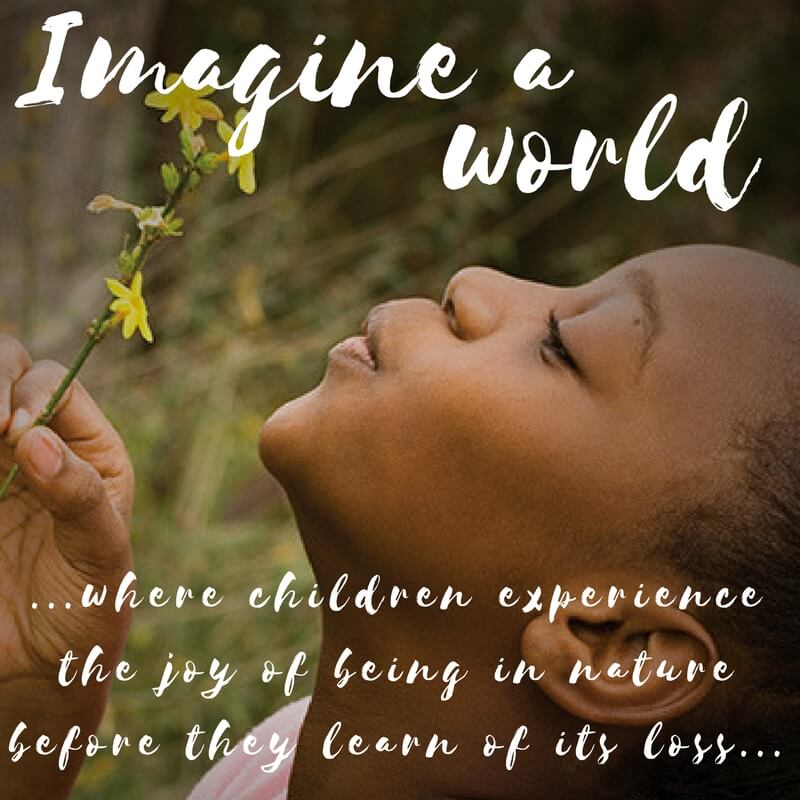 Imagine a newer world.
Imagine a newer world.
A world in which all children grow up with a deep understanding of the life around them. Where all of us know the animals and plants of our own backyards as well as we know the televised Amazon rainforest, or better. Where the more high-tech our lives become, the more we experience nature in our lives. Where we come to all our senses, including our sense of humility. Where we feel more alive.
We seek a newer world where we not only conserve nature, but create it where we live, work, learn and play. Where yards and open spaces are alive with native species. Where bird and butterfly migration routes are healed by human care. Where wildlife (and childlife) corridors in every city serve as the bronchial and arterial passages of life and meaning. Where we transform public and private property, garden to garden, yard to yard, into a homegrown national park — and beyond that into a worldwide homegrown park.
Imagine a newer world where nature-rich cities serve as engines of biodiversity. Where decaying suburbs and inner-city neighborhoods and redundant, aging shopping malls are transformed into nature-rich ecovillages.
Where empty lots and green roofs become natural play spaces and community gardens. Where skyscrapers become vertical farms, with spirals and decks that produce food and enrich the health of people and other animals. Where, through biophilic design, built environments not only conserve energy but produce their own energy, including human energy — in the forms of higher productivity, creativity and health.
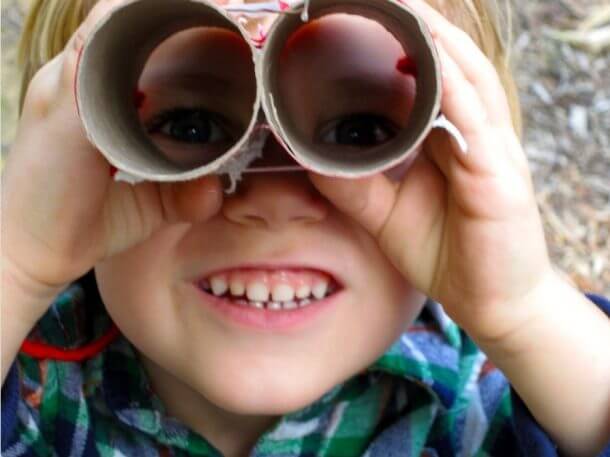 Imagine a world in which small rural towns, now deserted, return in new form: Internet-connected, surrounded by organic farms, edible prairies, and beauty. Where streams in cities and countryside are restored – unearthed to the daylight – their natural curves and life returned.
Imagine a world in which small rural towns, now deserted, return in new form: Internet-connected, surrounded by organic farms, edible prairies, and beauty. Where streams in cities and countryside are restored – unearthed to the daylight – their natural curves and life returned.
Where every hospital offers a healing garden, and pediatricians and other health professionals prescribe nature. Where park rangers become para-health professionals. Where antidepressants and pharmaceuticals are needed less and nature prescribed more. Where obesity – of children and adults – is reduced through nature play.
A newer world where the point of education is not rote and drill, but wonder and awe. Where education uses the power of the natural world to stimulate our ability to learn and create. Where “hybrid minds” are nurtured, amplifying the sensory and creative benefits of both virtual and natural experience.
Where every school has a natural space where children experience the joy of learning through play once again. Where teachers are encouraged to take their students on field trips to the nearby woods and canyons and streams and shores. Where educators feel their own sense of hope and excitement returning to their profession and to their own hearts.
Imagine a world where connecting people to nature becomes a growth industry. Where new businesses transform our homes, our workplaces, our lives, through nature. Where every regional economic study includes the measurable and immeasurable worth of watersheds and natural systems, and the restorative and healing powers of the natural world.
A newer world where children and adults feel a deep sense of identity with the bioregions in which they live. Where natural history becomes as important as human history to our regional and personal identities; where hstory is defined less by the battle of war and more by the stories of our kinship.
Where humans and other animals no longer live in oppostion. Where human-nature social capital enriches our daily lives, and where, as a species, we no longer feel so alone.
A world where children experience the joy of being in nature before they learn of its loss, where they can lie in the grass on a hillside for hours and watch clouds become the faces of the future.
Where every child and every adult has a human right to a connection to the natural world, and shares the responsibility for caring for it. Where every child regardless of race or economic status or gender or sexual identity or set of abilities has the opportunity to help create that nature-rich future.
Imagine a world where the strength of our spirit is not measured by the specificity of our language, but by the care and kinship we share with each other and with our fellow species on this Earth.
A world in which our last days are lived in the arms of mother nature, of land and sky, water and soil, wind and sea. A newer world we seek and to which we return.
-
Network News
Earth Day: Young leaders advocate for change
-
Feature
Nature photographer Dudley Edmondson has a vision for the representation of Black and Brown faces in the outdoors
-
Richard Louv
EARTH MONTH: You're part of the New Nature Movement if....
-
Voices
Placemaking: How to build kinship and inclusive park spaces for children with disabilities
-
Network News
Children & Nature Network founders release report on global factors influencing the children and nature movement
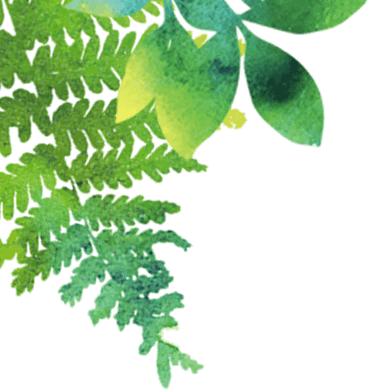

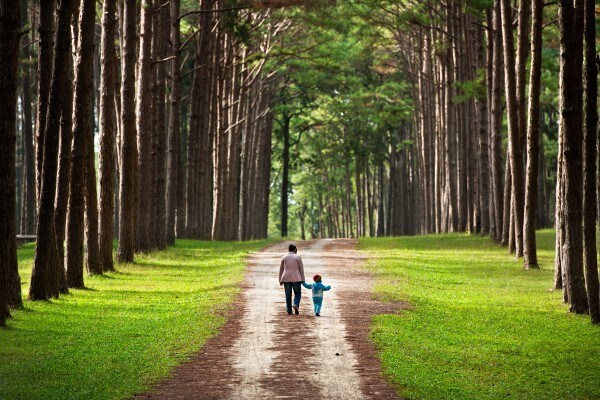
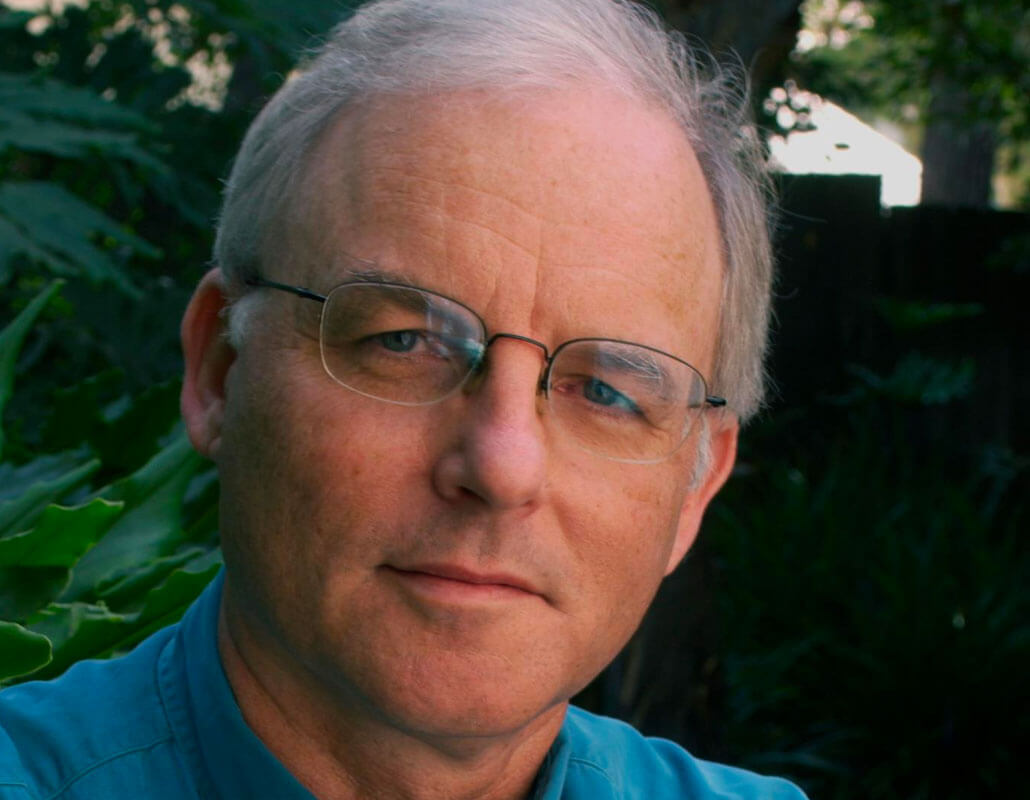
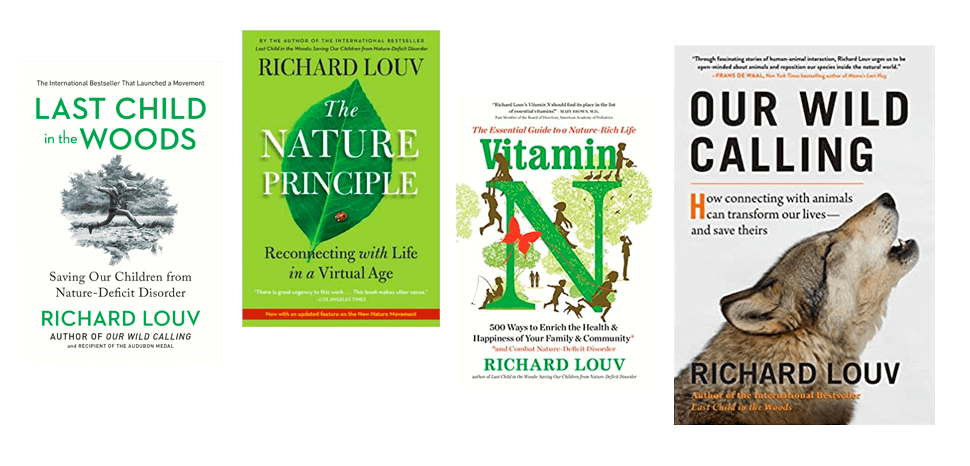
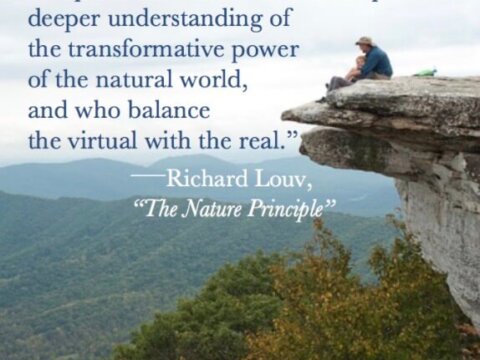
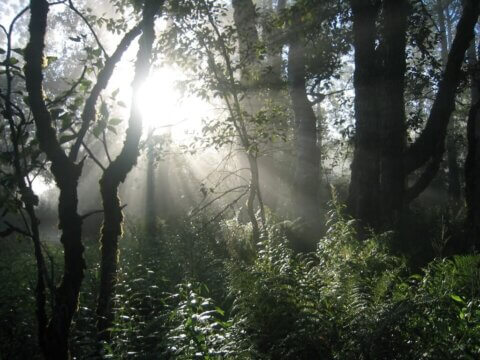
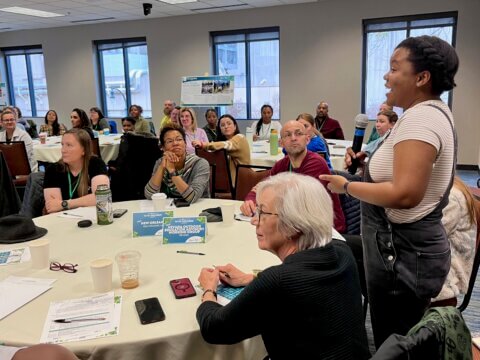
Commentaries on the C&NN website are offered to share diverse points-of-view from the global children and nature movement and to encourage new thinking and debate. The views and opinions expressed are those of the author(s) and do not necessarily reflect the position of C&NN. C&NN does not officially endorse every statement, report or product mentioned.